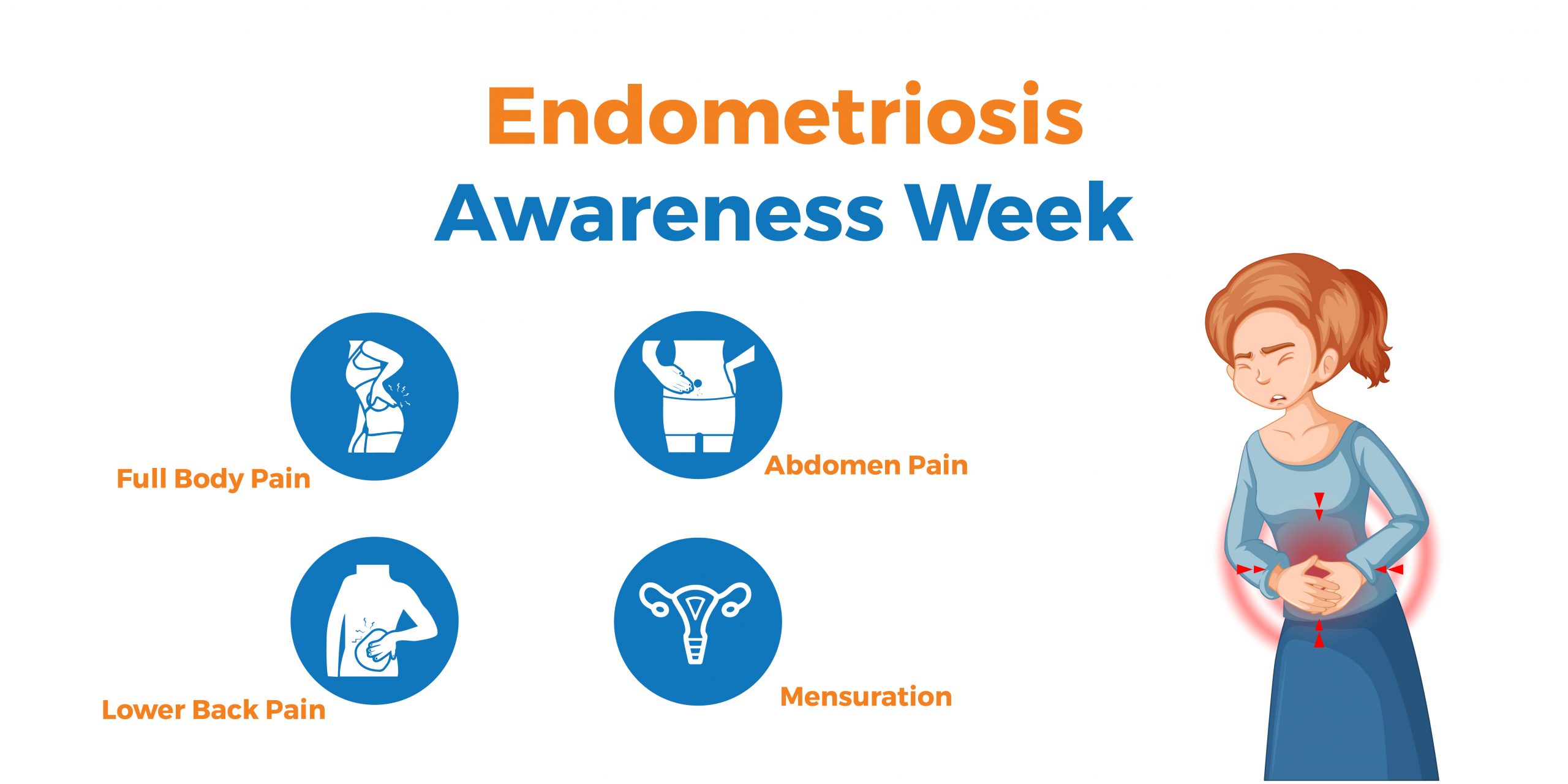Endometriosis is a chronic abnormal physical condition. It comes from the word endometrium-the lining in the uterus produced by female’s body every month in case of egg implantation. But if conception does not occur during that month, than your body will shed the endometrium and menstrual periods take place.
Sometimes, cells similar to endometrium, grow outside the uterus inducing chronic inflammation, scarring and adhesions with debilitating pain. This situation may distort woman’s pelvic anatomy. Endometriosis is not a period-dependent disease; endometriosis can continue after the menopause and without the presence of a period.
The exact prevalence of endometriosis is unknown but estimated to range from 2 to 10% in women of childbearing age. Its prevalence rises up to 50% in women with infertility.
- Stages of Endometriosis:
Endometriosis is categorized into 4 stages depending on its severity:
- Stage 1- Minimal Stage (Non-surgical)
- Stage 2- Mild Stage (Non-surgical)
- Stage 3- Moderate (Surgical)
- Stage 4 – Severe (Surgical)
- Symptoms of Endometriosis:
Around15 to 20% of women with endometriosis will present with no symptoms. Others may have any of these major conditions:
- Discomfort during and after menses
- Discomfort and pain during intercourse
- Discomfort and pain with urination or bowel movements
- Excessive bleeding during menses or bleeding between menses
- Infertility
The severity of your pain isn’t necessarily a reliable indicator of the extent of the condition. You could have mild endometriosis with severe pain, or you could have advanced endometriosis with little or no pain.
- Endometriosis and Fertility:
The inflammation during endometriosis is directly related to impaired fertility. Approximately one-third to one-half of women with endometriosis have difficulty getting pregnant.
For pregnancy to occur, an egg must be released from an ovary, travel through the neighboring fallopian tube, become fertilized by a sperm cell and attach itself to the uterine wall to begin development. Endometriosis may obstruct the tube and keep the egg and sperm from uniting. Sometimes, the condition also seems to affect fertility in less-direct ways, such as by damaging the sperm or egg. But even with mild to moderate endometriosis, one can still conceive and carry a pregnancy to term.
Luckily, pregnancy may improve endometriosis. The hormone production during pregnancy resolves endometriosis.
- Is Endometriosis Curable?
Endometriosis is a proceeding process and currently it has no cure, however, there are ways to manage the symptoms and pain through surgery, hormone treatment, as well as effective lifestyle and diet choices.
Medical and surgical options are available to help reduce your symptoms and manage any potential complications. It may be very hard and frustrating to get diagnosis and treatment options early in the disease. Because of the fertility issues, pain, and fear that there is no relief, this disease can be difficult to handle mentally. Anxiety and frustration may worsen the situation. In such situation, doctors recommend to stay happy and positive for better health condition.
Early symptoms and pain are managed by over-the-counter pain-killers like ibu-profen.
Later, hormone therapy (including hormone supplements) is added to relieve pain and stop disease progression.
For stage 3 and 4, invasive surgery-leproscopy is performed to destroy endometrial growth without damaging reproductive organs.
Hysterectomy is considered as last resort if condition does not get better with other treatments. Uterus and cervix are removed during surgery along with ovaries. But a person can never conceive after this procedure so it is preffered in late ages.
- Foods that may positively effects Endometriosis:
To fight pain and inflammation during endometriosis, one needs to change her lifestyle with diet.
- Fibrous foods including fruits, vegetables, legumes and whole wheat
- Iron rich food including dark leafy-vegetables, fortified grains and nuts
- Anti-oxidants rich food including oranges, berries, dark chocolate, spinach, and beets
- Essential fatty-acids including fish, walnuts, chia and flex seeds may help soothing this condition.
- Foods that may negative effects Endometriosis:
- Red meat
- Trans-fats
- Caffeine and Alcohol
- Processed or Canned food
Must be eliminated for managing symptoms of Endometriosis. Life-style changes like yoga, meditation and regular exercise are must for endometriosis-patient.


